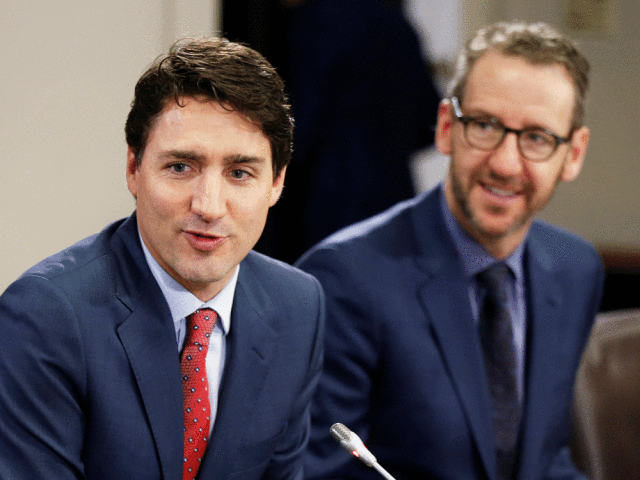The prime minister knows they speak English in Alberta and Saskatchewan, right?
I’m serious. Late in the just-concluded election campaign, as the Bloc strengthened and Quebec’s seats came into play, keen bilingual observers were listening very carefully to what the party leaders said in both official languages, looking for variations subtle or gross. But now I’m wondering if Justin Trudeau thinks they speak an entirely different language in the West. His press conference on Wednesday suggested he might think they can’t hear or comprehend what’s said in Ottawa.
It was an interesting press conference for a lot of reasons, really. Having just lost a million votes, you might’ve expected a somewhat more chastened man than the one we got at his press conference. But what we saw instead was essentially more of the same, and weirdly, a promise of much more of the same when it comes to one of the biggest problems his minority government must now cope with: western alienation.
The very first question posed to the prime minister was how he is going to handle having no elected members, at all, in Saskatchewan and Alberta. Trudeau said that he would be reaching out to those provinces and that the government must work for all Canadians.
Does he really think the problem in the West is that they haven’t quite heard from him enough? Albertans and Saskatchewaners know exactly what the prime minister and those around him have been saying for years. That’s a big part of why they are angry.
I’m not one of those people out there, of which there are too many, who believes that the only thing standing between Alberta and a new era of unbridled economic prosperity is a thumbs-up from the PM. Much of what the Liberals have proposed is actively harmful — cancelling pipelines and introducing regulatory uncertainty into approvals has drawn sharp criticism from the West, and for good reasons. But a lot of the pain being felt in the West was inevitable, or at least beyond the power of Canadian politicians to instantly remedy. Even the most engaged prime minister imaginable might not have been able to accomplish much more than what has been done thus far. Challenges for oil producing nations everywhere in recent years, as well as the various court challenges here at home, would have largely tied the hands of any government.
The problem for the prime minister, though, isn’t that he’s a victim of circumstances beyond his control. It’s that he can’t stop, or won’t stop, saying things and employing people who say things that understandably piss the West off. It’s the insult added to the injury.

Can Trudeau snap his fingers and twin the Trans Mountain pipeline? Of course not. But could he have not spent the dying days of the campaign crusading against “big oil” as if 37 million people did not understand exactly what he was talking about? Campaign statements that play well with the lefty-green crowd in Toronto and Quebec aren’t somehow bottled up by forcefields within those jurisdictions. People in Alberta and Saskatchewan have Twitter, and read articles, and watch the evening news. When the PM and his closest confidants open up on the oil industry, are westerners supposed to assume he means some other oil industry, not theirs?
And this isn’t long-ago stuff. This is stuff that, in some cases, was being used as a central plank in Liberal messaging just days ago. The Liberals were hammering “dark oil money” in tweets through the party’s official account just weeks ago. In the French language debates, Trudeau attacked Kenney and Ford and “les petroliers qui les appuient” (the oil men who support them, in my rough translation). Two weeks ago, Liberal campaign organizer and close Trudeau confidant Gerald Butts was tweeting that the Conservative platform had been written by “the oil lobby.” He didn’t mean that in a good way. Nor does recently re-elected environment minister Catherine McKenna use the term “oil lobbyists” as one of endearment when she warns about the damage they’ll do to Canada’s environment and Indigenous peoples.
Again, these are not long-ago comments, like when Trudeau said the oil sands needed to be phased out, which was in that distant, nearly forgotten time of … huh, OK, it was actually just two years ago. While he was prime minister.
When Trudeau, his environment minister and his good buddy and political operator speak of Canada’s energy sector like it’s the enemy of Canada and Canadians, Canadians listen. All of them. Not just the ones the Liberals are trying to woo. And the ones most personally attacked by the comments remember.
Again, this isn’t about expecting Trudeau to work judicial or macroeconomic miracles. But the prime minister could at least remember what he said at his press conference on Wednesday: that the government must work for all Canadians. And that includes western Canadians, even during elections.
Near the end of his campaign, Trudeau lamented the increasing divisions in Canadian society — the growing bitterness and polarization. He wondered what more he could have done to bridge those gaps.
Not driving wedges into them would be a good place to start. In French, English or even Albertan.
• Email: magurney@postmedia.com | Twitter: mattgurney





























